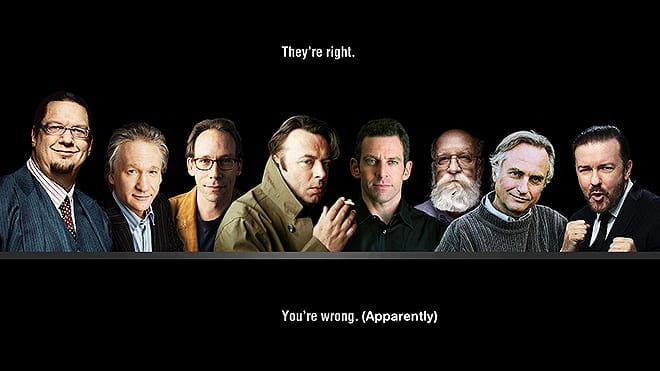I’m dreaming of a secular Christmas

There’s no Christ left in Christmas
Mike Aguiar
Sputnik (Wilfred Laurier University)
Every year, the same battles get fought about whether there is a “secular war on Christmas” or if Christians are forcing religion on others. This holiday season, though, let’s remember the true meaning of Christmas – consumerism.
Holiday shopping usually accounts for as much as 40 per cent of a retail store’s annual revenue and as much as 75 per cent of its annual profit. On average, North Americans do a quarter of their personal shopping during the Christmas season. Throughout the months of November and December there is a doubling of profit in bookstores and an increase of 170 per cent in jewellery stores.
In the United States, the first Friday after Thanksgiving officially kicks off the shopping orgy with huge sales. It has earned its name of Black Friday not because of the trampling deaths of Wal-Mart employees but because it’s the first profitable day of the year for most retailers – hence, getting out of the red ink of debt and into the black.
The Grinch’s conclusion that Christmas doesn’t come from a store and that “Christmas, perhaps, means a little bit more,” was correct – Christmas means $485 million in tree sales collected by U.S. farmers.
Yet, this wonderful tribute to capitalism has been criticized in recent years for becoming increasingly secular. Both religious groups and conservative pundits claim that the secular left has an agenda that entails removing the “Christ” from “Christmas.” Apparently, this phenomenon occurs in the month of December when retailers greet their customers with “Happy Holidays” instead of the time-honoured “Merry Christmas.”
In 2005, the retail chain Lowe’s got its chestnuts roasted by these organizations after changing the name of their Christmas trees to “Holiday trees” in flyers. The department store has since learned its lesson and reverted back to good old Christmas trees.
Schools throughout North America are also subject to this Yuletide anger. Most public elementary schools have stopped singing overtly religious Christmas carols, which is understandable. Children receiving public education shouldn’t be singing the praises of any one religion. However, a primary school in Ottawa received criticism for its plans to have students sing an approved version of “Silver Bells” that replaced the term “Christmas” with “holiday.”
It seems like somebody has been spiking the proverbial eggnog. The term “Christmas” as well as the holiday itself has become secular. After all, the most salient image of Christmas is Santa Claus: A fat man who uses flying reindeer to commit home invasions every Dec. 25. Our current understanding of Santa as a jolly gift-giver in a red suit was more or less created by Coca-Cola as an advertising campaign that began in the 1930s.
Actually, if Christmas purists were really concerned about celebrating the “true” origins of the holiday, they would have a feast for the Pagan sun god Mithras on Dec. 25 instead. When Rome began converting from Paganism to Christianity, leaders at the time kept many of the same holidays in order to make the transition as smooth as possible.
So in 350 BC, Pope Julius I simply declared that the birth of Christ, instead of Mithras, would be celebrated on Dec. 25.
The notion that “Merry Christmas” needs to be replaced with “Happy Holidays” so as not to offend non-Christians is ridiculous. It’s political correctness run amok. Saying “Merry Christmas” to somebody in a shopping mall doesn’t mean that you endorse the Christian faith. Instead, it’s the shared understanding that you’re both there to indulge in consumerist tendencies.
I’m not saying that the Baby Jesus-Christmas is dead; those seeking the manger myth can easily hear it at any Christian place of worship. But the holiday has become a secular one, which means that Christians shouldn’t be looking for their version of Christmas in shopping malls. And the Scrooges that are offended by a “Merry Christmas” need to find a new issue to “Bah, humbug!” about. I’ve got a Santa-sized sack full of problems with organized religion, but the term “Merry Christmas” isn’t in it.











This season, let's put the Saturn back in Saturnalia